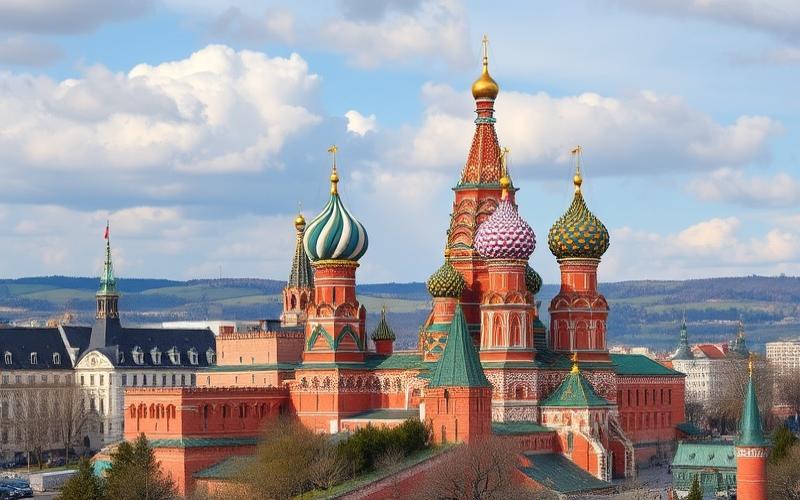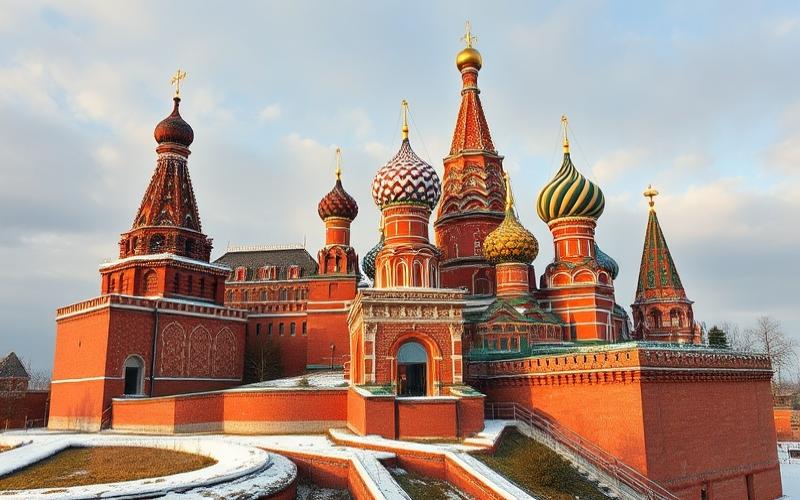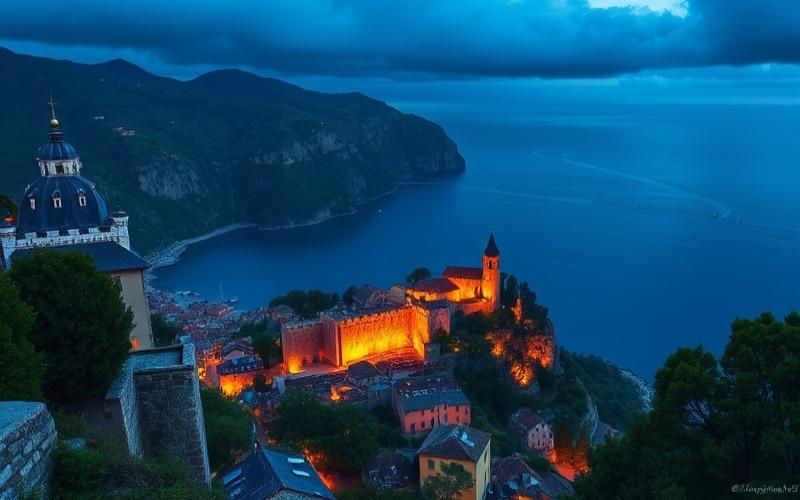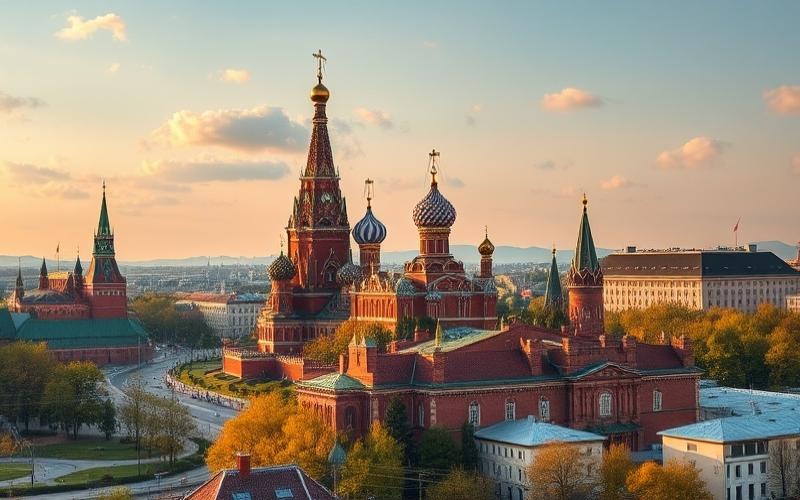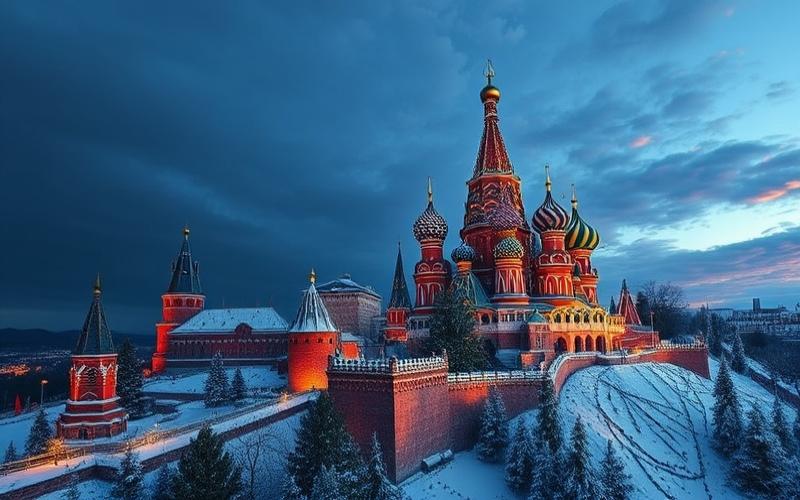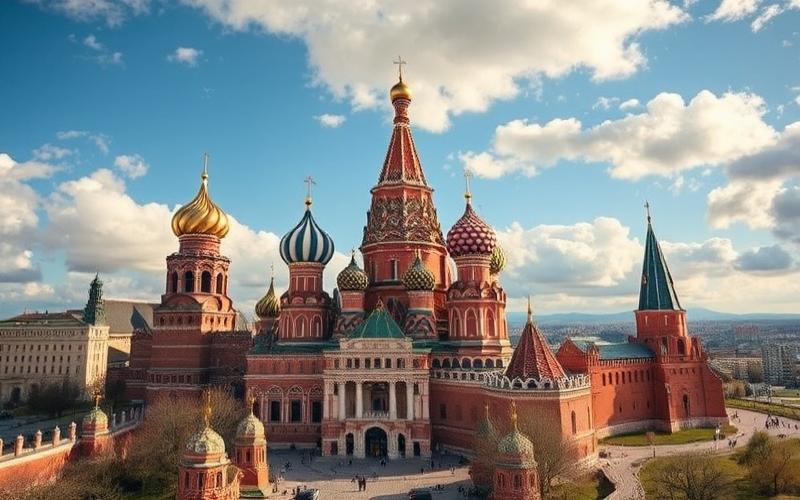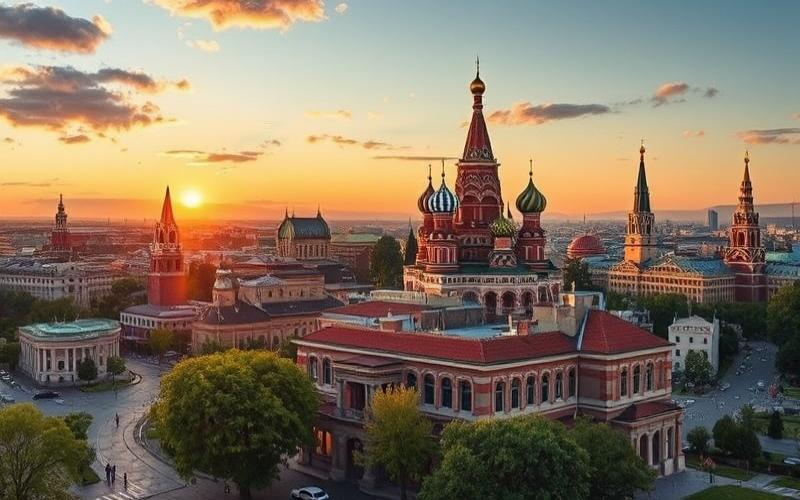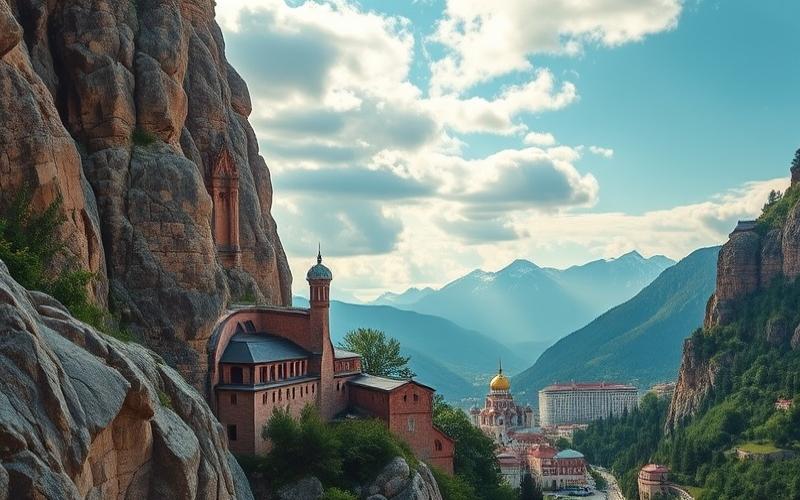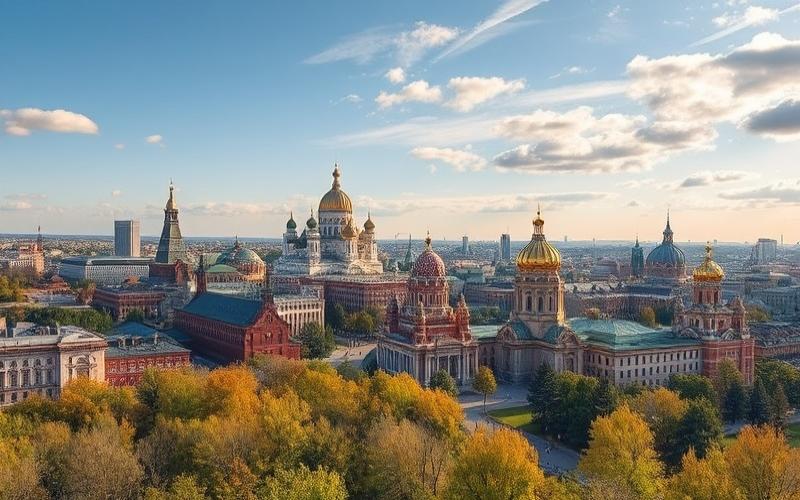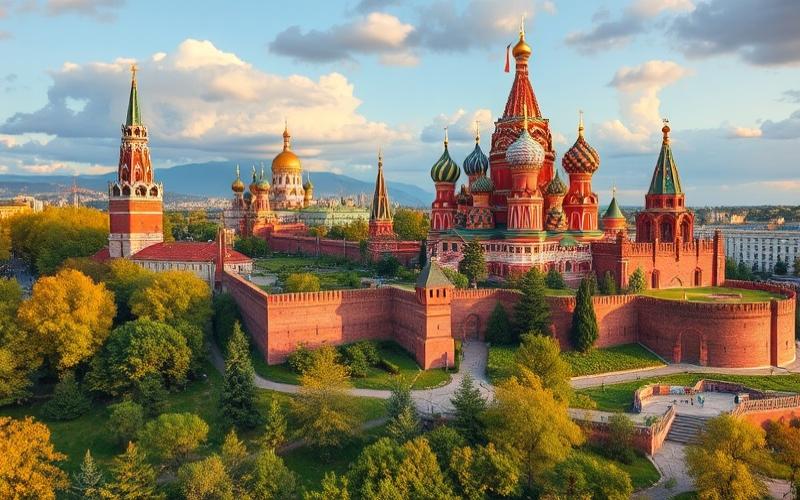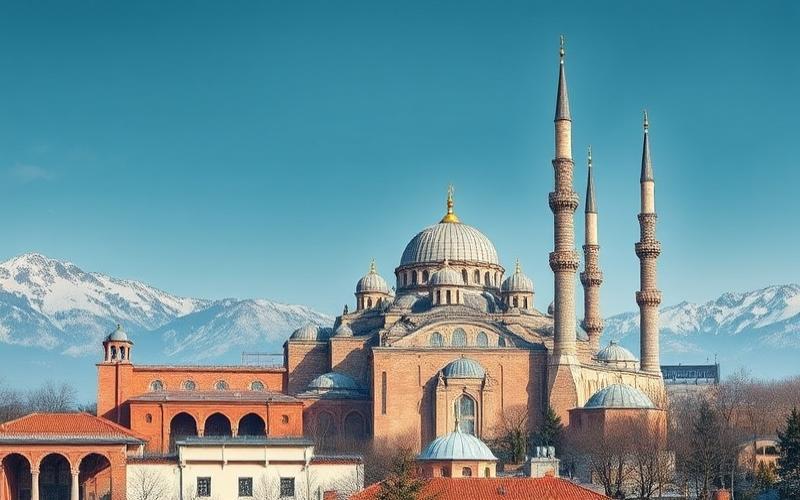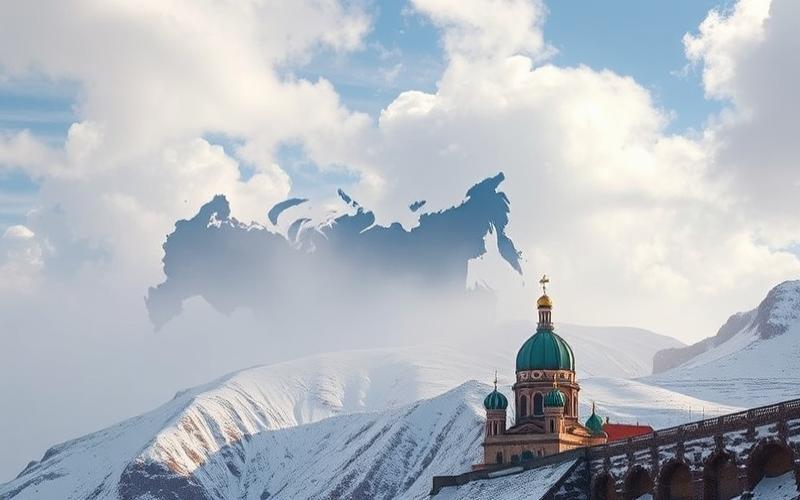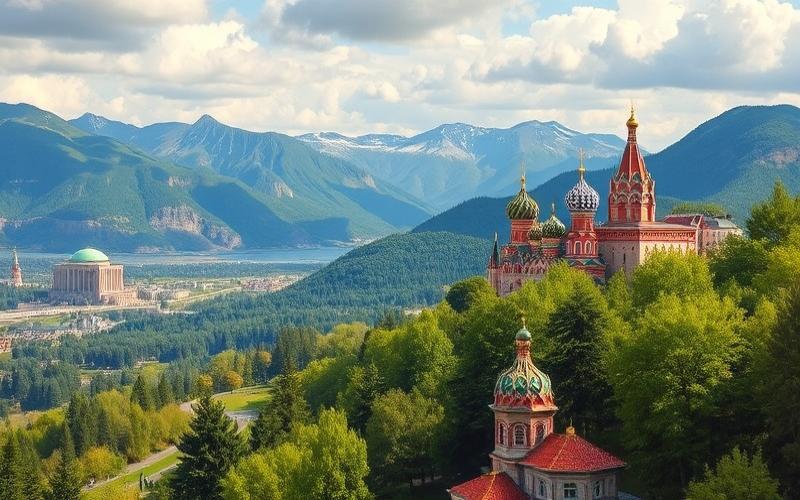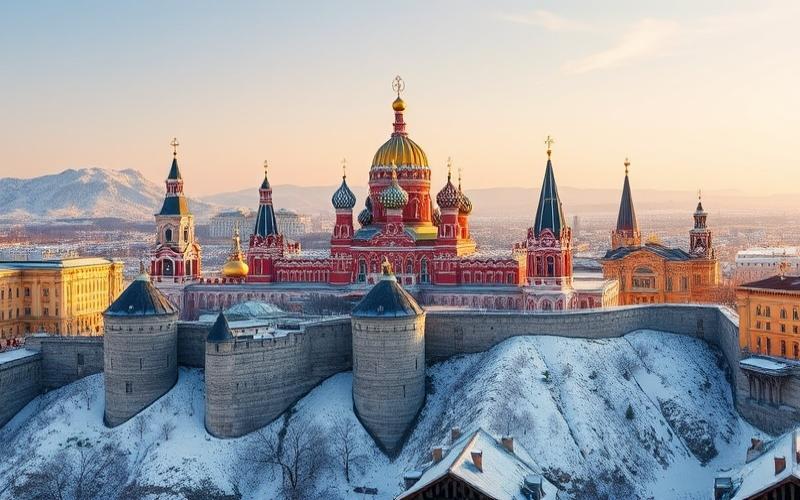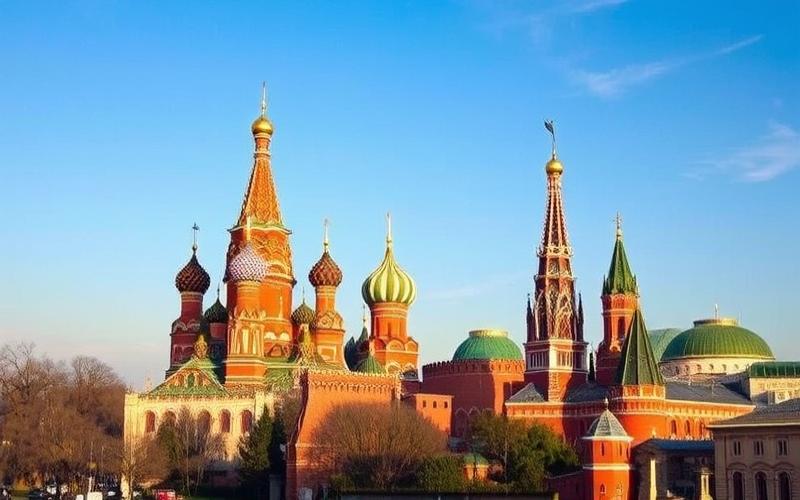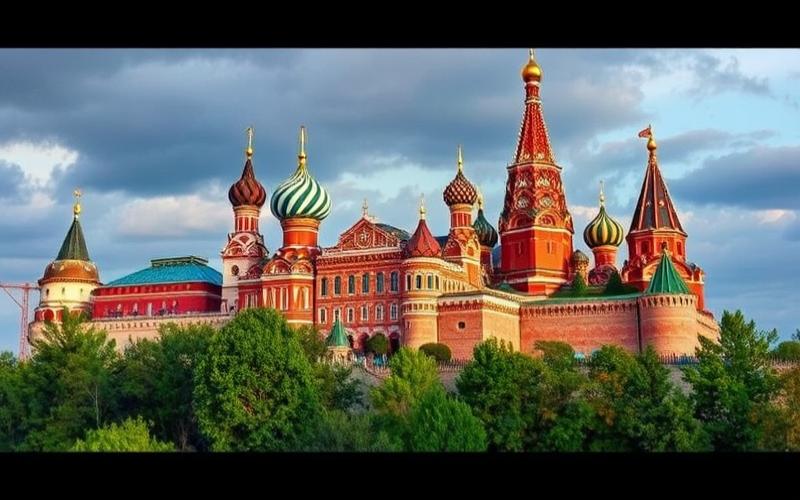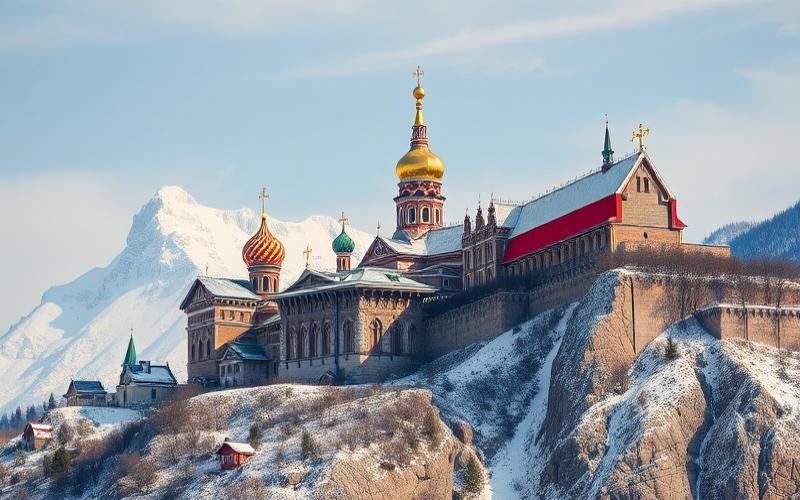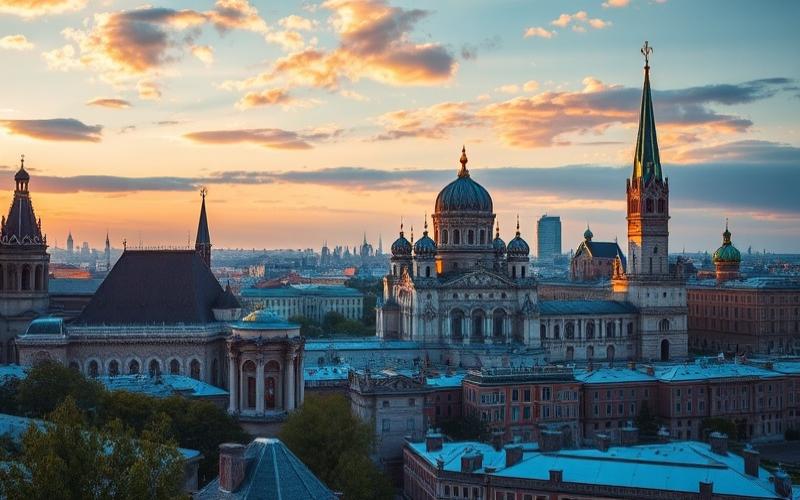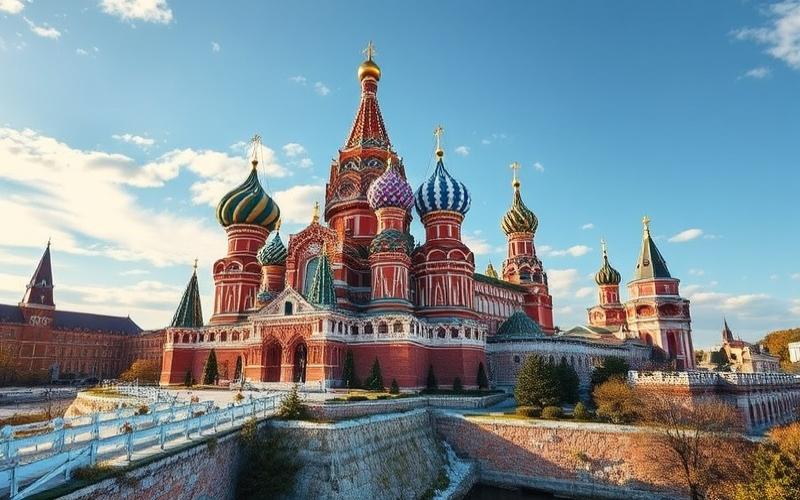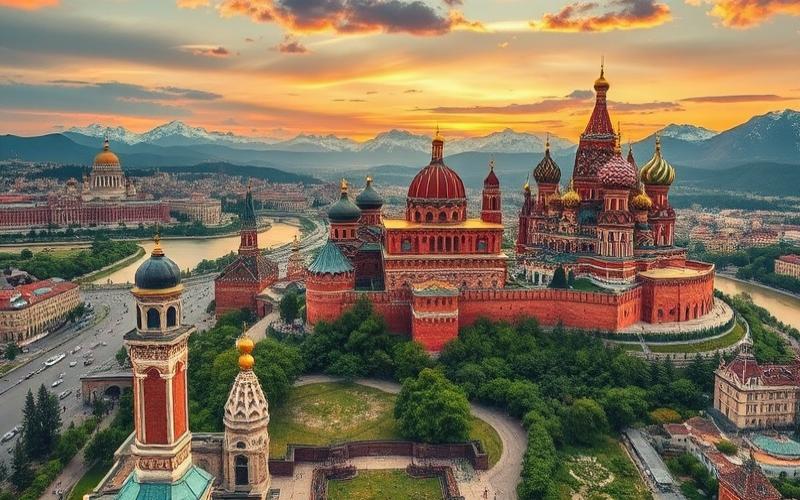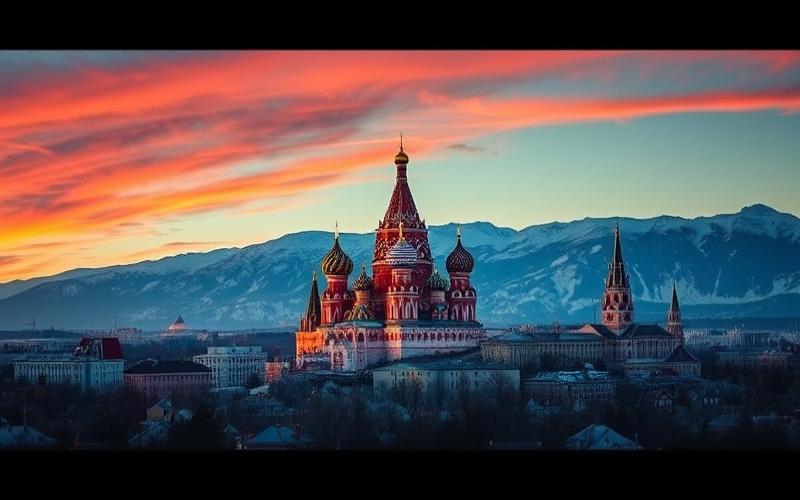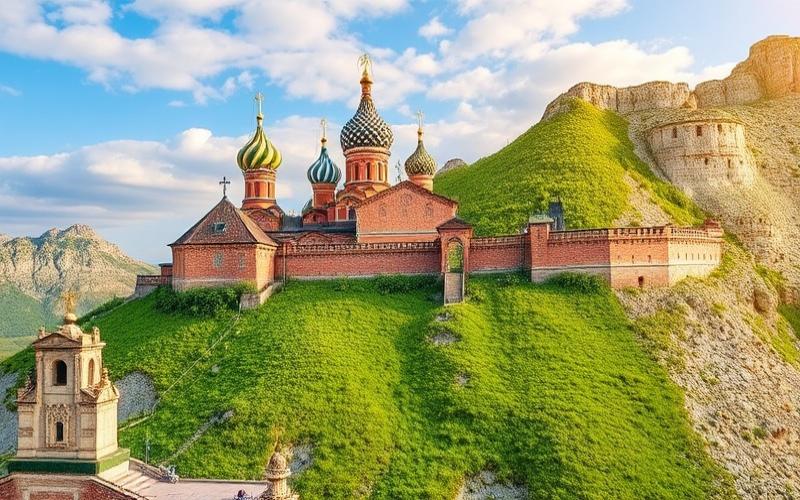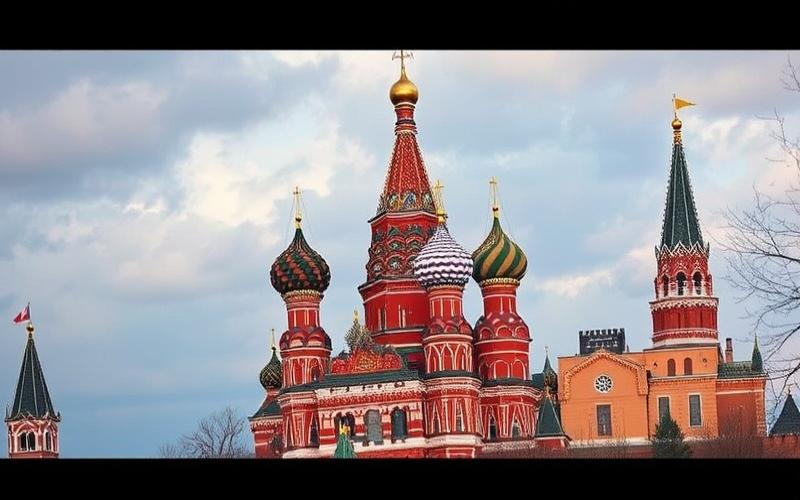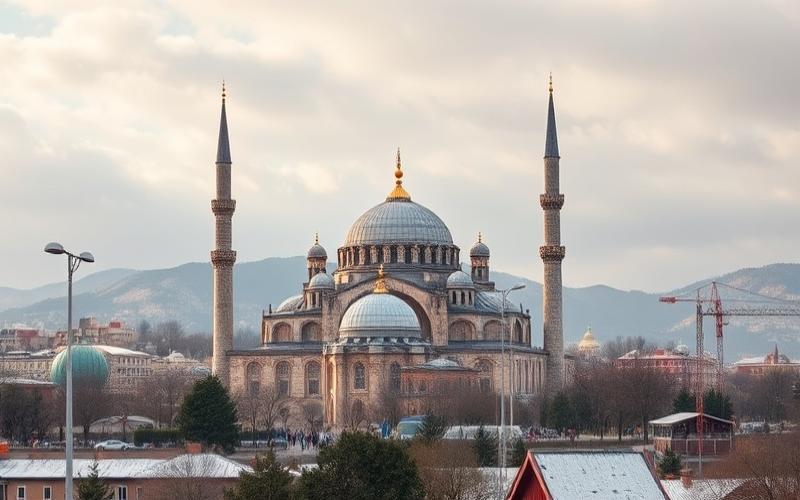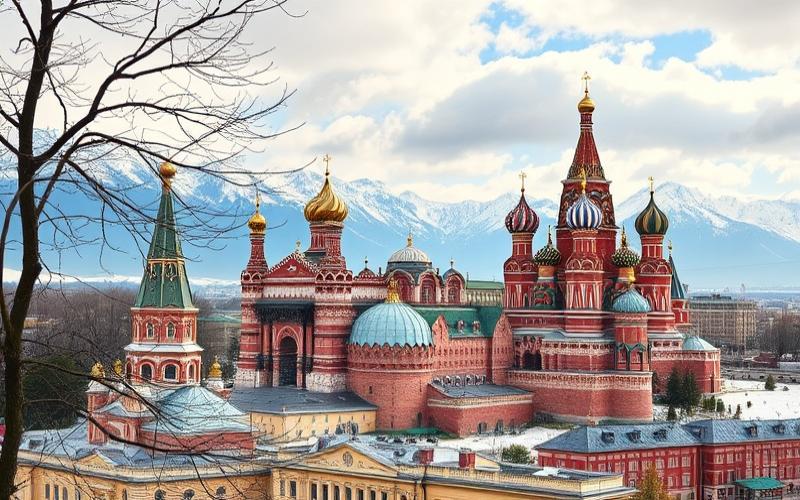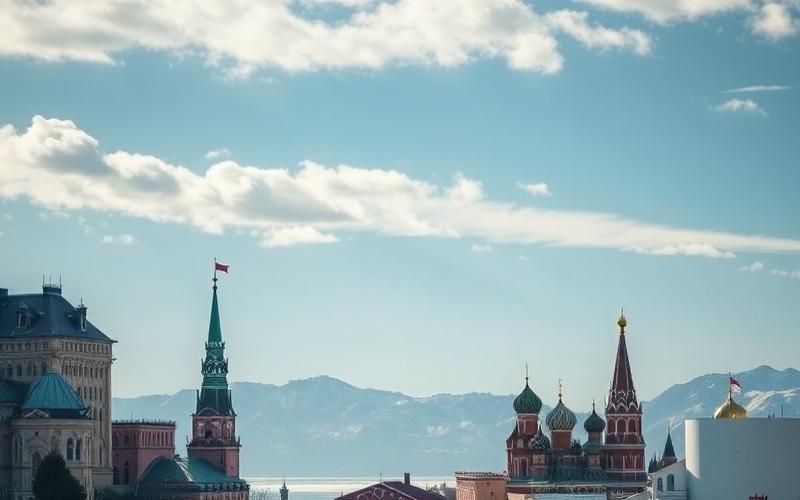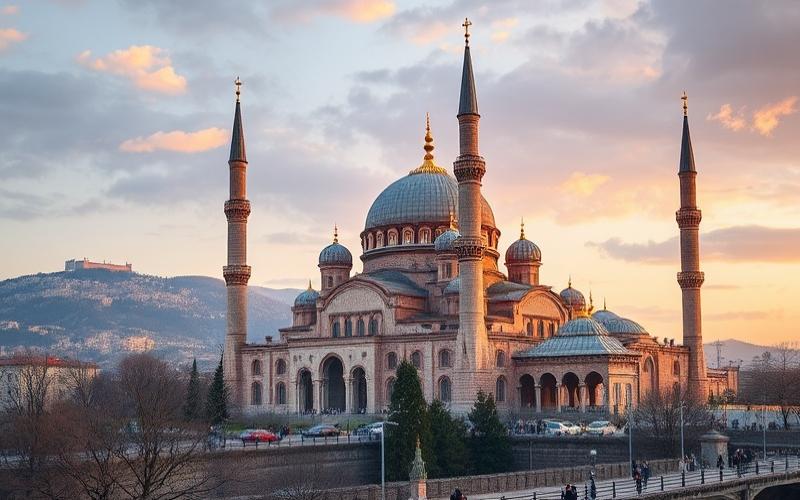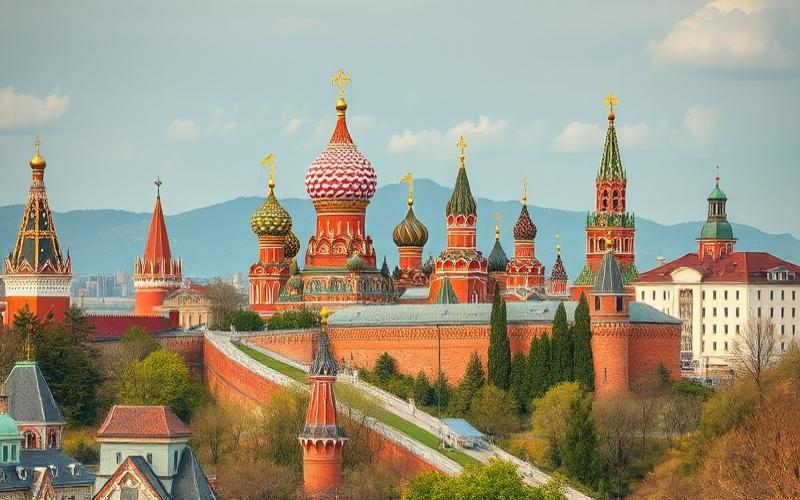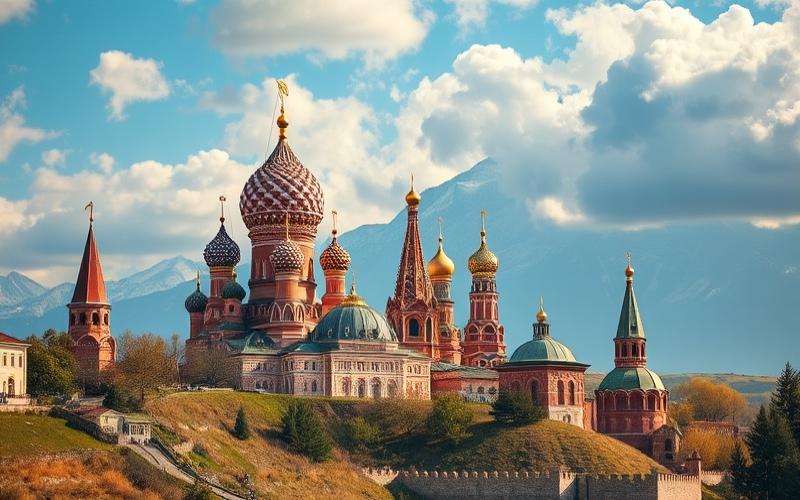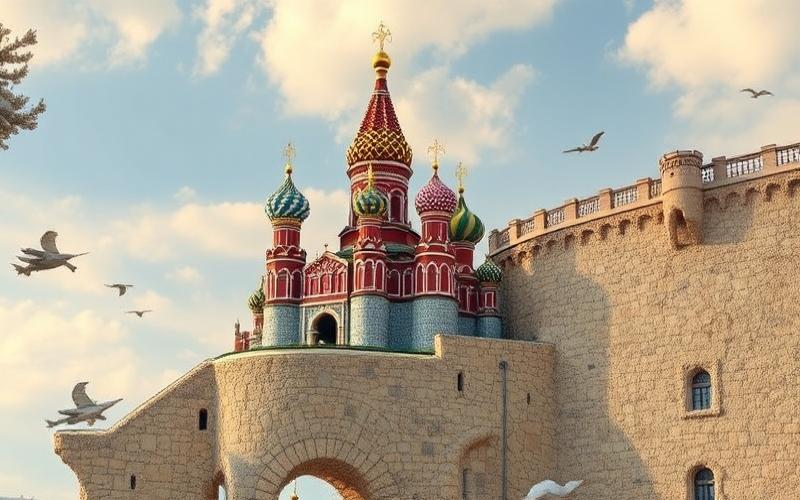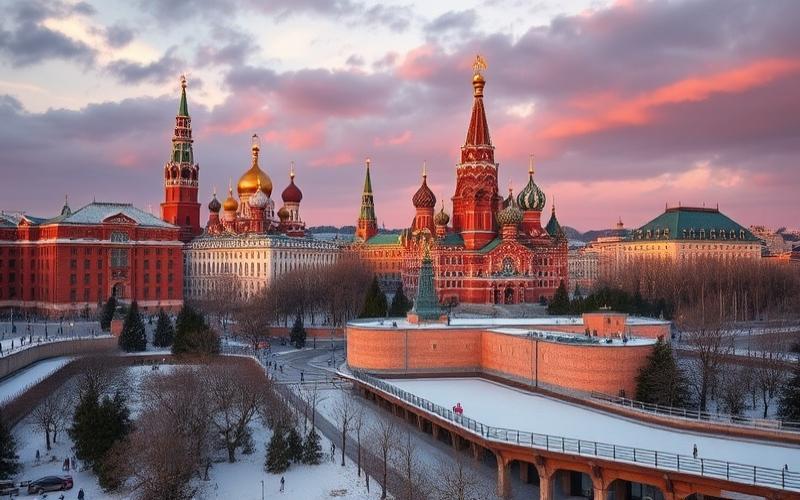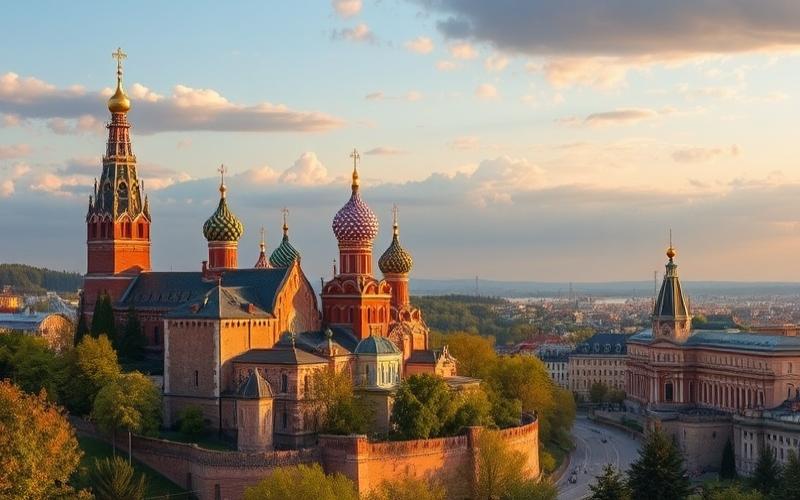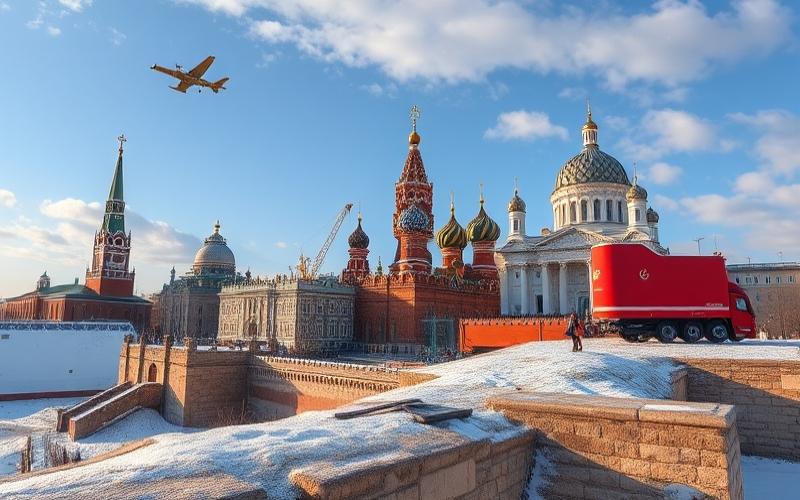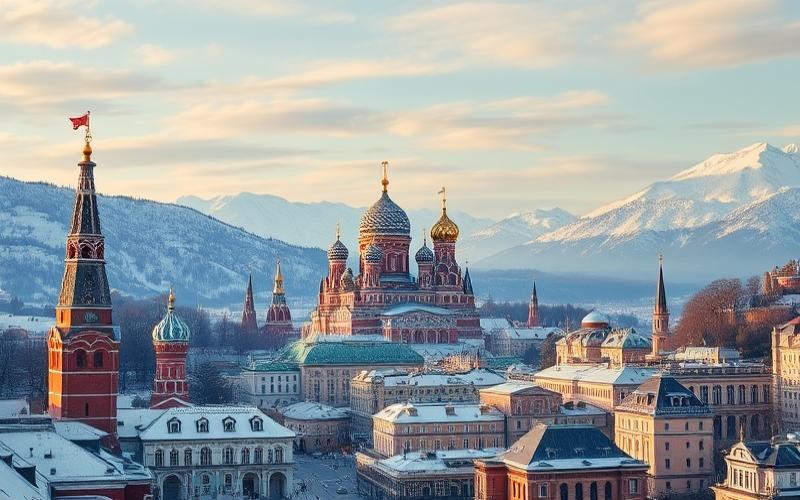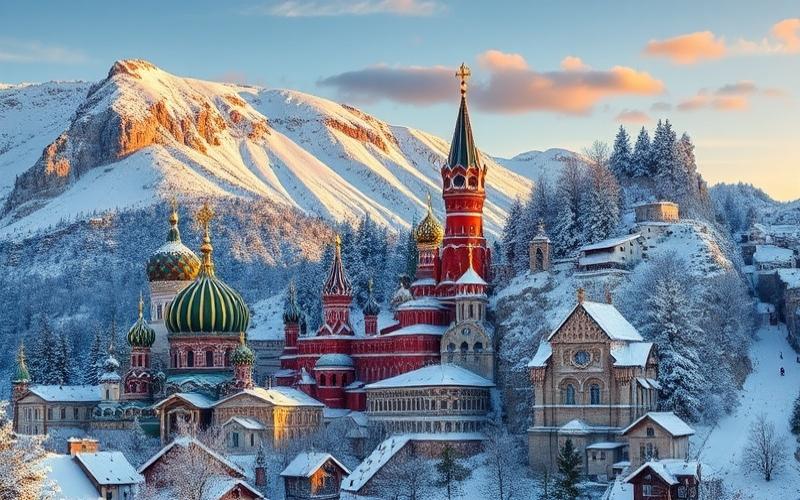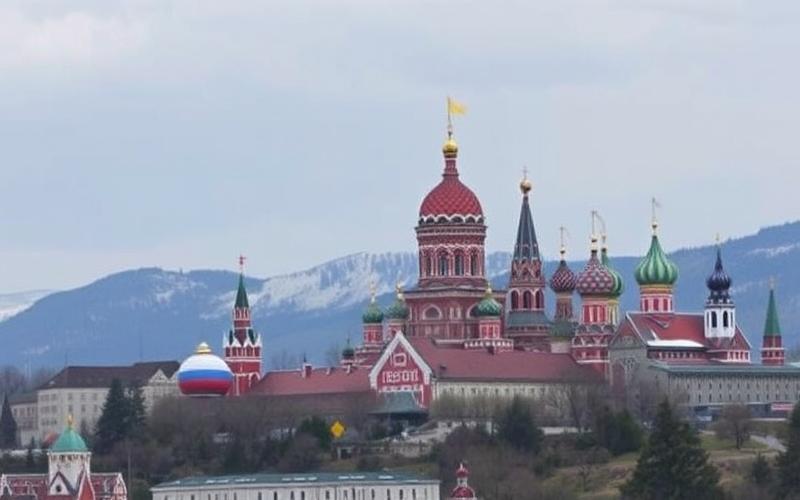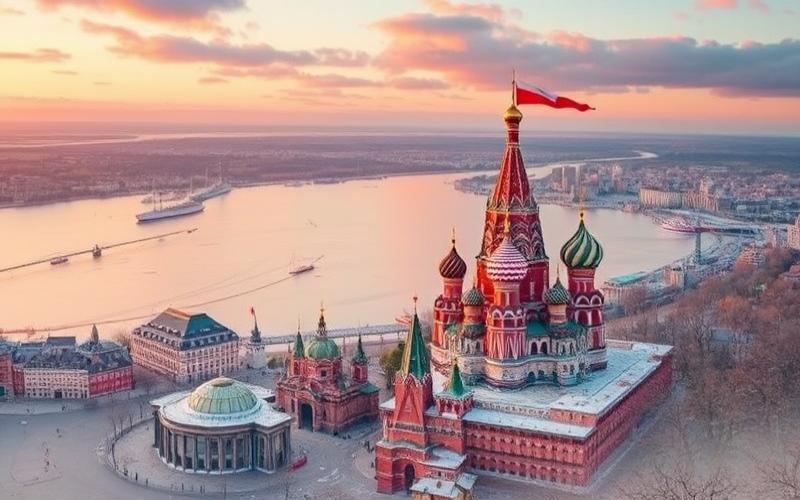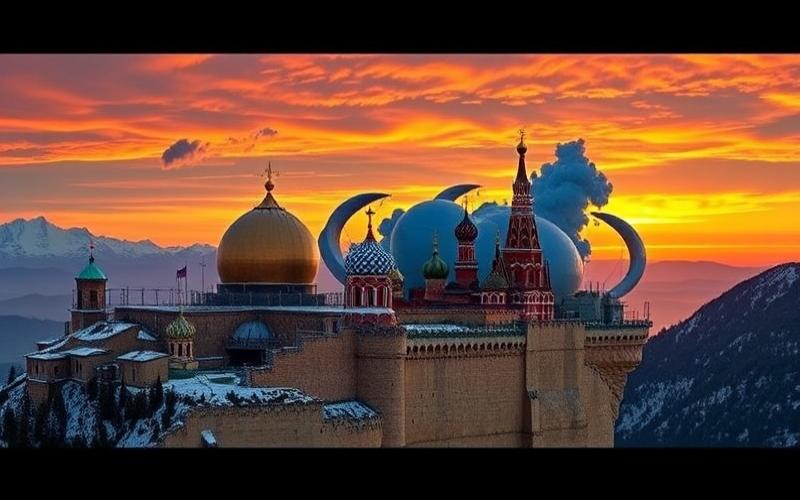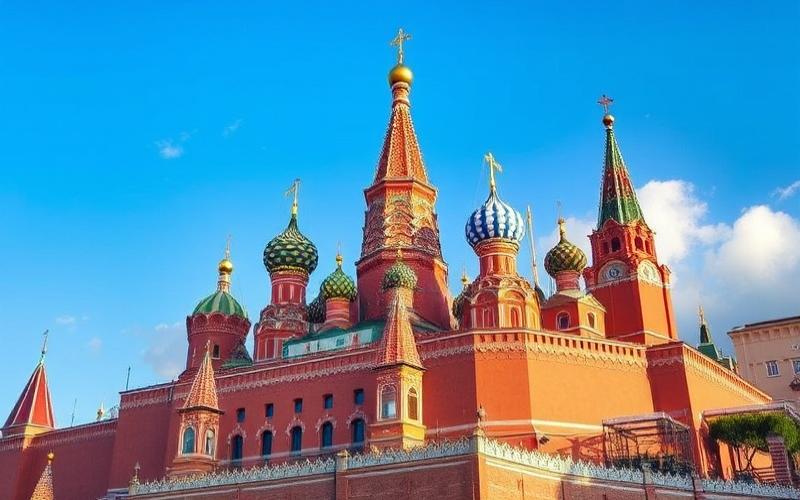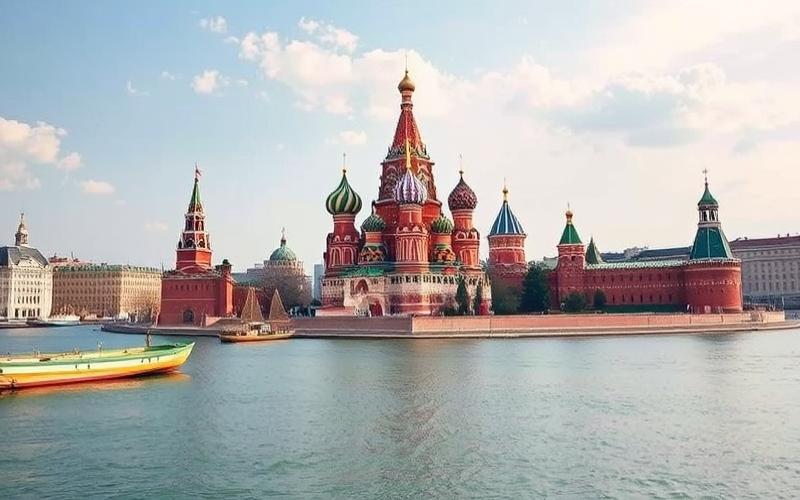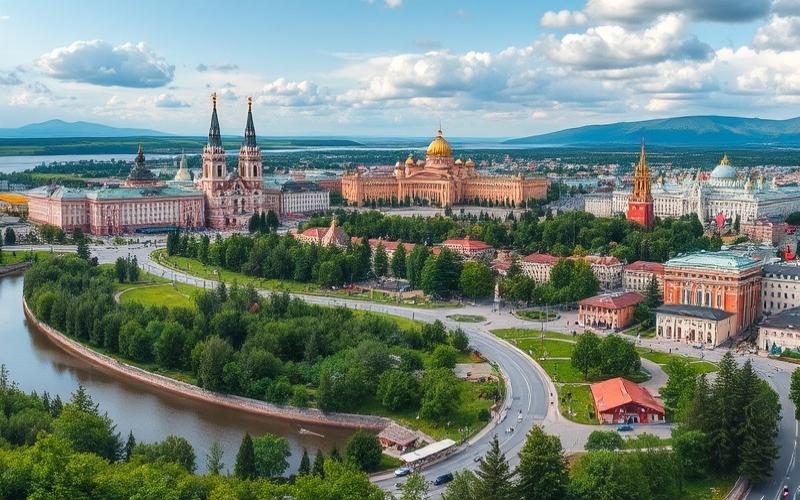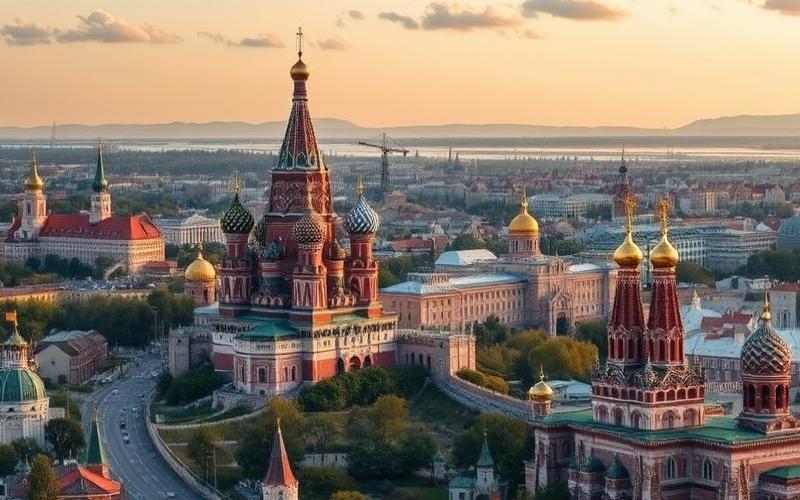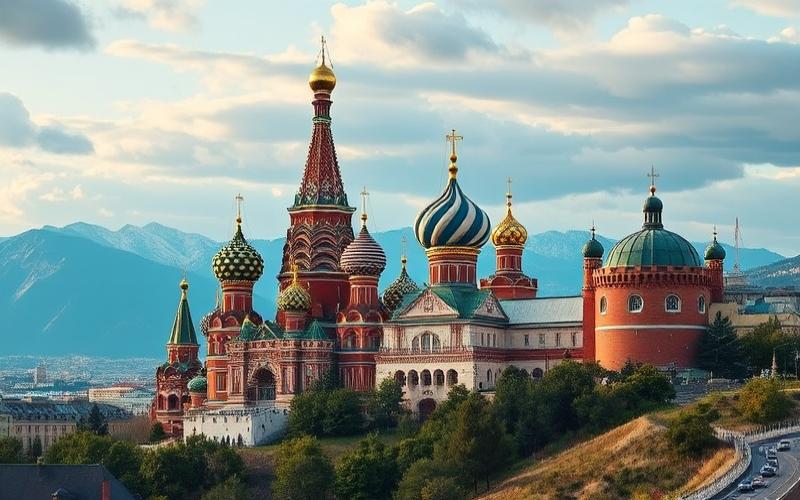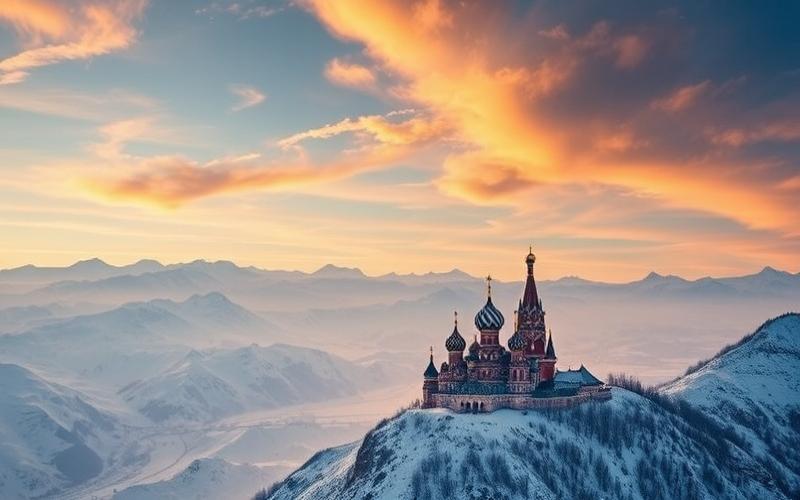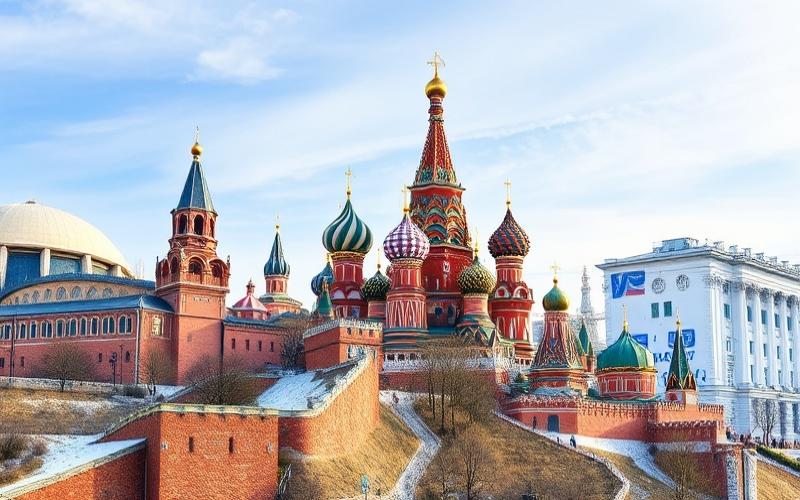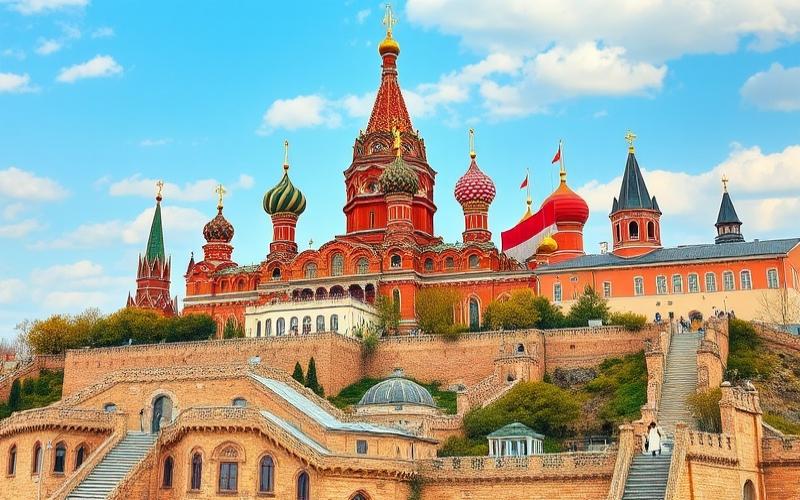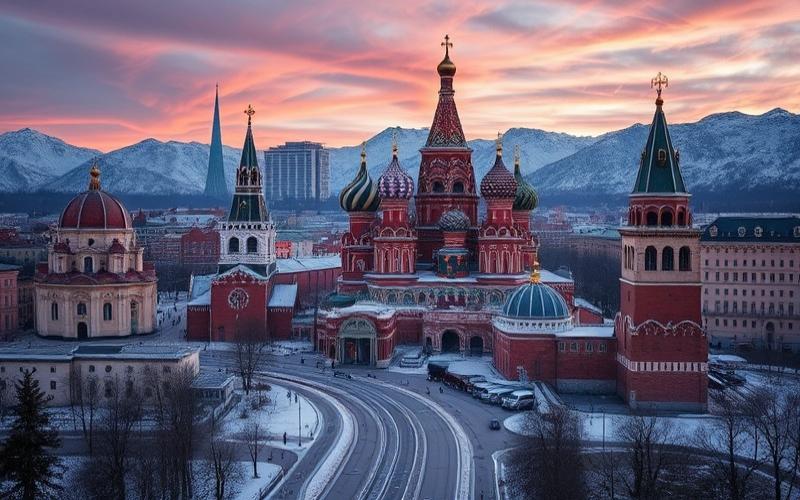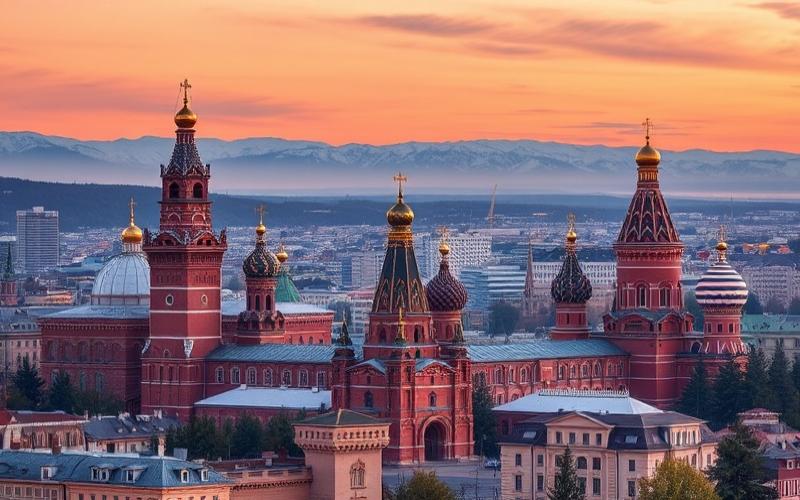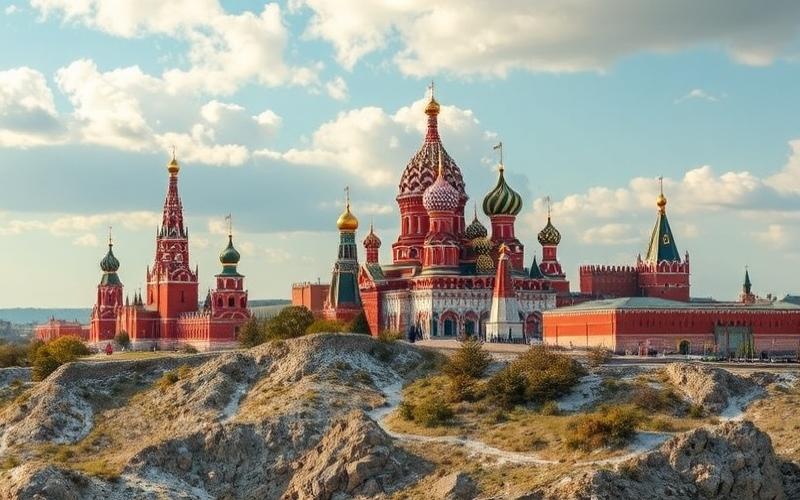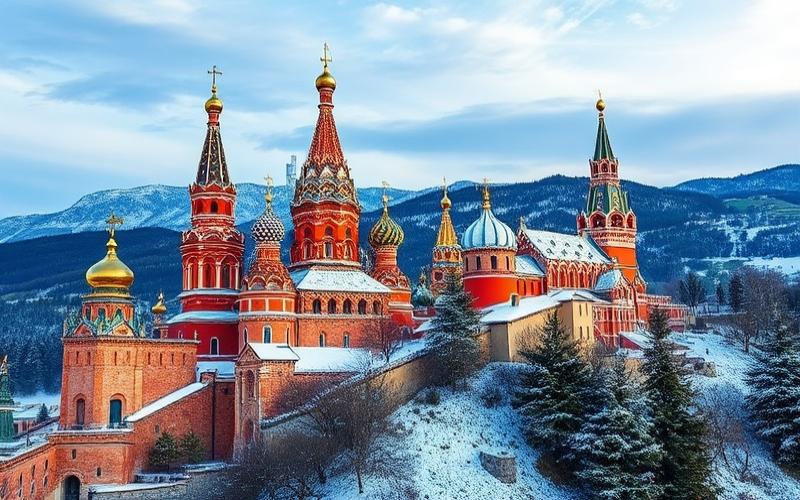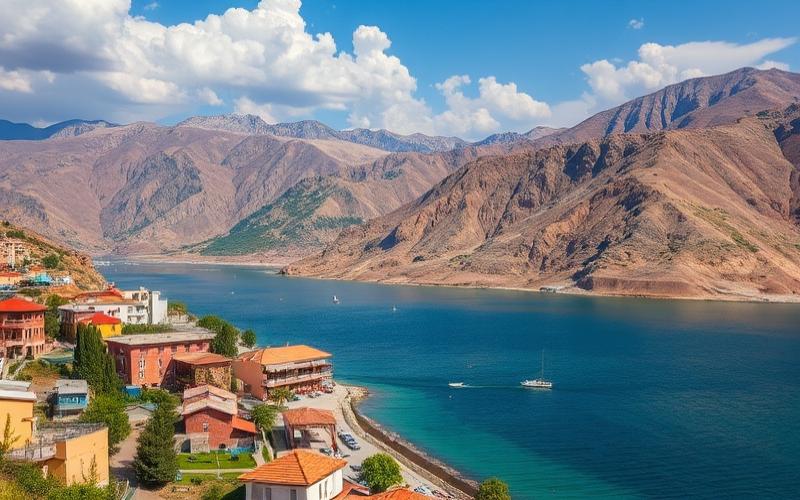
 Published on and written by Cyril Jarnias
Published on and written by Cyril Jarnias
With the rise of remote work, nomadic living has taken on a whole new dimension, particularly in Russia where coworking spaces have multiplied at an impressive rate.
While Moscow and Saint Petersburg remain top destinations for many itinerant professionals, lesser-known cities like Kazan or Yekaterinburg also offer an innovative range of shared workspace solutions.
These spaces aren’t just offices, but dynamic communities where ideas flow freely and international collaboration flourishes.
Exploring the benefits and challenges of nomadic life in Russia, this article invites you to discover how the country’s modern infrastructure and growing entrepreneurial culture are transforming cafes and lofts into true hubs of creativity for workers worldwide.
Best Coworking Spaces for Nomads in Russia
| City | Coworking Space | Location/Access | Main Amenities | Atmosphere | Pricing & Subscriptions | Testimonials/Reviews |
|---|---|---|---|---|---|---|
| Moscow | Regus – Stoleshnikov | Downtown, historic building | 24/7 access, transportation access, lounge areas, professional services | Elegant, productive | From 45,300 RUB/month office | “Elegant decor, natural light, very professional” |
| Coworking Start Hub | Design Plant, Novodmitrovskaya | 24/7, fast internet, kitchen, coffee, fitness, pool | Modern, creative | 9,000 RUB/month (flex), 13,000 RUB/month (fixed) | “Pool access, very friendly atmosphere” | |
| Flacon Coworking | Flacon District | Meeting rooms, events, coffee, internet | Industrial, artistic | Upon request | “Perfect for creatives, lively community” | |
| Opulence – Solitaire Connect | Central, easily accessible | High-speed internet, coffee, careful design | Quiet, premium | 86 USD/month (hot desk) | “Premium atmosphere, very quiet, well located” | |
| Cabinet Lounge | Downtown | Lounge areas, private rooms, business services | Exclusive, high-end | 392 USD/month (hot desk) | “Private club feel, ideal for networking” | |
| Saint Petersburg | Gnome House | Central | Fast internet, coffee corner, creative spaces | Creative, community-oriented | 9.5/10 (user rating) | “Ideal for freelancers, warm welcome” |
| Futuroom | Near transportation | Hot desks, meeting rooms, kitchen | Modern, quiet | 63 USD/month (hot desk) | “Bright space, perfect for focusing” | |
| Novosibirsk | YellowRockets | Downtown | Fast internet, open space, professional events | Dynamic, tech-oriented | 89 USD/month (hot desk) | “Easy networking, good atmosphere” |
| Novosibirsk co-working | Central | Shared offices, coffee, private rooms | Comfortable, professional | 9.4/10 (user rating) | “Very comfortable offices, responsive staff” | |
| Other Cities | LoCoworking (Samara) | Near center | Hot desks, internet, meeting rooms | Friendly, bright | 152 USD/month (hot desk) | “Good lighting, welcoming community” |
| 13th Floor (Yekaterinburg) | Top floor, panoramic view | Open spaces, coffee, networking | Inspiring, modern | Upon request | “Incredible city view, perfect for creating” |
Current Coworking Trends in Russia:
- Strong Rise of Hybrid Spaces: Many spaces offer both coworking, private offices, and event areas to meet the needs of freelancers, startups, and established companies.
- Focus on Community: Numerous spaces regularly organize workshops, meetups, and after-work events, strengthening the sense of belonging and facilitating professional networking.
- Premium Services and Flexibility: Flexible subscriptions (daily, weekly, monthly), 24/7 access, and services like fitness or relaxation rooms are becoming standard in major cities.
- Growth in Regions: Beyond Moscow and Saint Petersburg, cities like Novosibirsk, Kazan, Yekaterinburg, or Samara are seeing spaces emerge tailored to a new generation of digital nomads.
Impact on the Digital Nomad Community:
- Nomads appreciate the diversity of spaces, 24/7 accessibility, and presence of active communities that facilitate quick integration into a new city.
- Testimonials highlight the importance of atmosphere and internet quality, two essential criteria for remote productivity.
- The varied offerings allow choosing between creative, premium, or more relaxed atmospheres, depending on profiles and needs.
“In Moscow, access to modern, well-equipped spaces changed how I work: I feel both autonomous and surrounded.”
“In Saint Petersburg, I discovered a very tight-knit freelance community, always ready to exchange advice or share a coffee.”
“In the regions, coworking allowed me to integrate quickly and develop my professional network, even far from major metropolises.”
Good to Know:
Some spaces like Workki in Moscow or Ukiyo in Saint Petersburg offer flexible subscriptions with friendly relaxation areas, and according to users, Ziferblat allows nomads to pay only for time spent, a unique option in Russia. Trends show an increase in hybrid spaces that expand networking possibilities, a key advantage for digital nomads.
How to Choose a Workspace Suitable for Expatriates
To choose a workspace suitable for expatriates in Russia, several essential criteria must be considered:
- Location Accessibility
- Proximity to public transportation (metro, bus, etc.).
- Easy access from residential neighborhoods popular with expatriates.
- Presence of shops, restaurants, and services nearby for daily needs.
- Modern Equipment Availability
- Reliable high-speed internet connection.
- Equipped meeting rooms (video conferencing, projectors).
- Printers, scanners, and other office tools.
- Quiet areas for concentration and open spaces suitable for collaborative work.
- Networking Options Available
- Regular organization of professional events (workshops, conferences).
- Active community enabling exchanges between Russian and foreign members.
- Internal platforms or groups facilitating professional connections.
- Security Reputation
- Video surveillance and access control at the building entrance.
- Neighborhood known as safe among local and foreign residents.
Other practical criteria:
- Flexible hours (spaces open late or accessible 24/7).
- Pricing adapted to real needs: hot desks vs. fixed offices.
| Criterion | Specific Importance for Expatriates |
|---|---|
| Accessibility | Facilitates quick integration |
| Modern Equipment | Necessary for remote work |
| Networking | Accelerates adaptation & opportunities |
| Security | Provides reassurance in an unfamiliar environment |
Cultural Differences to Consider
The Russian professional environment can be perceived as more formal than in some Western countries. Punctuality is appreciated; internal rules must be strictly respected even in informal spaces like coworking.
Russian is the dominant language. Although some spaces welcome an international clientele with English-speaking staff, minimal knowledge of Russian greatly facilitates daily exchanges.
Legal/Regulatory Specifics in Russia
- Russian visas are mandatory for legal work on site. There are different types depending on status: classic business visa or specific permit if a local contract is signed.
- Some professions are subject to restrictions; it’s therefore advisable to verify the compatibility between your intended activity and local legal conditions before any professional commitment.
Note: In case of salaried employment by a foreign company without a local establishment or adequate visa, you might encounter administrative or even legal difficulties.
Concrete Examples of Coworking Spaces Popular Among Expatriates/Digital Nomads in Russia
| Space | City | Specific Advantages |
|---|---|---|
| WeWork | Moscow | Recognized international network; numerous events |
| Workki | Moscow/SPB | Multilingual welcome; large IT/startup community |
| DI Telegraph | Moscow | Creative design atmosphere; many workshops/networking |
| Impact Hub | Moscow | Socially engaged; strong international openness |
Common advantages:
- Central location with easy metro access
- Modern infrastructure meeting international standards
- Welcoming communities promoting quick integration
It is recommended before any long-term subscription to visit several spaces to assess their actual atmosphere and personal cultural compatibility.
Visual Summary – Quick List of Essential Points:
Prioritize:
- Easy accessibility
- Complete infrastructure
- Active network open to foreigners
- Proven security
Attention:
- Potential language barrier
- Required compliant administrative status
- Cultural differences in work organization
Good to Know:
Ensure the coworking space is near public transportation for easy access, and verify the presence of modern meeting rooms and high-speed connections. Places like Ziferblat in Moscow or WeWork in Saint Petersburg are known for their secure environment and numerous networking opportunities, but familiarize yourself with work visa rules to avoid legal complications.
Coworking in Sofia: A Popular Option for Digital Nomads
Sofia is experiencing remarkable growth in coworking spaces, positioning it as a favored destination for digital nomads and international remote workers. This dynamic is explained by several complementary factors:
- Attractive Cost of Living: Sofia offers rents, meals, and services significantly cheaper than in other European capitals.
- Quality of Technological Infrastructure: The city benefits from fast, reliable, and affordable internet connection, essential for remote work.
- Dynamic International Community: Many expatriates, entrepreneurs, and freelances have chosen Sofia, creating an ecosystem conducive to professional and personal exchanges.
Comparison of Assets
| Criterion | Sofia | Major Russian Cities |
|---|---|---|
| Cost of Living | Low to moderate | Variable (Moscow/Saint Petersburg higher) |
| Internet Quality | Very good (fiber widely available) | Good in urban centers |
| Nomad Community | Growing international | More local, less focused on digital nomadism |
| Modern Coworking Spaces | Many varied choices | Present but sometimes more institutional |
Iconic Spaces in Sofia
- Betahaus Sofia
- 24/7 access
- Regular community events
- Flexible spaces for freelancers or teams
- SOHO (Sofia Holistic Coworking)
- Creative atmosphere with indoor garden
- Frequent cultural activities
- Pet-friendly space appreciated for its friendliness
- Puzl CowOrKing
- Specialized in tech/startup with high-end equipment
- Strong IT community
- Entract127 & Work&Share
- Entract127: premium environment downtown, suitable for professional meetings
- Work&Share: large campus with big collaborative lounges
Services Offered
- High-speed WiFi connection
- Private or shared offices
- Equipped meeting rooms
- Kitchen/coffee/tea free access
- Networking event programs
Testimonials
“Here I found a perfect balance between affordable daily costs and professional quality. The local network is very welcoming.”
“The after-work events organized every week really facilitate integration.”
Many spaces like Networking Premium or Biz Hub are expanding their offerings toward coliving – thus promoting all-in-one temporary settlement.
Comparison with Russia
- The Russian offering is concentrated in major metropolises (Moscow/Saint Petersburg), often through institutional networks like Regus.
- The proportion of spaces truly designed for the “digital nomad” lifestyle remains lower. The current regulatory context can also deter some international profiles.
The main common points lie in widespread urban high-speed access; however, Sofia stands out for its growing multicultural openness and quality/price ratio that particularly attracts mobile international communities.
Key Takeaways
Sofia is establishing itself as a European digital hub thanks to its modern infrastructure, attractive rates, and friendly cosmopolitan atmosphere – major assets that appeal to the new generation of flexible work.
Good to Know:
In Sofia, coworking spaces like Betahaus and SOHO offer modern equipment and fast internet connection, attracting an active international community, often at lower prices than Moscow. While in Moscow, spaces tend to focus more on tech hubs with more developed infrastructure, Sofia attracts with its affordable cost of living and charming local life.
Advantages and Challenges of Nomadic Life in Russia
Advantages of Nomadic Life in Russia
Cultural and Historical Opportunities
Russia offers exceptional diversity of landscapes – from the Siberian taiga to the Black Sea beaches – and remarkable cultural richness. Cities like Moscow, Saint Petersburg, Kazan, Yekaterinburg, and Irkutsk offer unique local traditions, varied architecture, and authentic festivals. Nomads can thus explore a vast territory, each region having its own identity.
“Every day, I discovered something new. I went from surprise to surprise. Many things seemed exotic to me.”
Advantageous Cost of Living
The cost of living in Russia is often lower than in major European or North American cities. Even in Moscow, considered the country’s most expensive city, it’s possible to adopt a comfortable lifestyle at reasonable prices, particularly for housing, food, and transportation.
Regions outside major metropolises are even more affordable, allowing nomads to extend their stay without sacrificing quality of life.
| City/Region | Housing Cost (studio/month) | General Living Standard |
|---|---|---|
| Moscow | High, but variable | High/moderate |
| Saint Petersburg | Moderate | Moderate |
| Provincial Regions | Low to very low | Low/moderate |
Coworking Infrastructure Network
Major Russian cities, especially Moscow and Saint Petersburg, have numerous modern, well-equipped, and affordable coworking spaces. These infrastructures are essential for the nomadic community, facilitating the creation of professional networks and offering a stable work environment.
| City | Number of Coworking Spaces | Quality and Services |
|---|---|---|
| Moscow | Very high | High level, international |
| Saint Petersburg | High | Very good, dynamic |
| Other Major Cities | Medium to low | Variable |
Challenges of Nomadic Life in Russia
Visas and Work Permits
Visa regulations remain complex for foreigners, especially for extended stays or remote work. Administrative procedures can be lengthy and often require assistance from a specialist or lawyer.
Language Barrier and Cultural Differences
Mastery of Russian is a major asset; few Russians speak English, especially outside major cities. Cultural differences – in communication, social codes, or bureaucracy – can be surprising and require an adaptation period.
“It’s not easy for a foreigner to find employment in Russia, unless they’re involved in IT, finance, etc. and know Russian.”
Extreme Climate Conditions
Some regions of Russia, particularly Siberia and the Far East, experience very harsh winters, with temperatures that can drop to -70°C. These conditions require specific logistics and can limit mobility or access to certain infrastructures.
| Region | Winter Temperature | Impact on Nomadic Life |
|---|---|---|
| Moscow/Saint Petersburg | -10°C to -25°C | Necessary adaptation |
| Siberia/Far East | -30°C to -70°C | Strong constraint, isolation |
Internet Connectivity and Digital Resources
In major cities, internet connection is reliable, fast, and affordable. However, in rural areas and some isolated regions, coverage is limited or even nonexistent, which can be a major obstacle for online workers.
| Area | Internet Quality | Availability |
|---|---|---|
| Major Cities | Excellent | Very good |
| Small Towns | Good to average | Average to good |
| Countryside/Siberia | Variable to poor | Often limited |
Testimonials and Experiences
Guillaume Chauvin, French photographer, testifies to a “fascinating” daily life in Russia, marked by constant discovery, exoticism, and a strong sense of mutual aid, although cultural differences can sometimes be disorienting.
Vaibhav, Indian expatriate, highlights the advantageous cost of living, even in Moscow, and the possibility of living comfortably provided one adapts and stays well-informed.
Reports on nomadic populations in Siberia illustrate the ability to adapt to extreme conditions, the strength of local communities, and the importance of autonomy and resilience.
Visual Summary
| Advantages | Challenges |
|---|---|
| Cultural and geographical diversity | Complex visa procedures |
| Affordable cost of living | Language barrier |
| Quality coworking spaces | Extreme climate conditions |
| New professional networks | Limited connectivity outside cities |
Key Points to Remember
- Russia, with its vastness, offers nomads a unique experience, but requires flexibility, preparation, and cultural openness.
- Major cities are suited to digital life, while isolated regions are reserved for seasoned adventurers.
- Integration comes through language learning and gradual adaptation to local codes.
Good to Know:
Russia’s cultural and landscape diversity is a major asset for nomads wanting to explore, but challenges related to visas and internet connectivity can complicate daily life, especially outside major cities like Moscow and Saint Petersburg.
Disclaimer: The information provided on this website is for informational purposes only and does not constitute financial, legal, or professional advice. We encourage you to consult qualified experts before making any investment, real estate, or expatriation decisions. Although we strive to maintain up-to-date and accurate information, we do not guarantee the completeness, accuracy, or timeliness of the proposed content. As investment and expatriation involve risks, we disclaim any liability for potential losses or damages arising from the use of this site. Your use of this site confirms your acceptance of these terms and your understanding of the associated risks.

